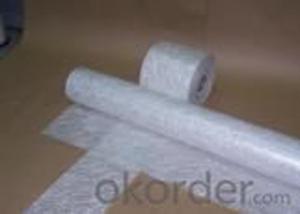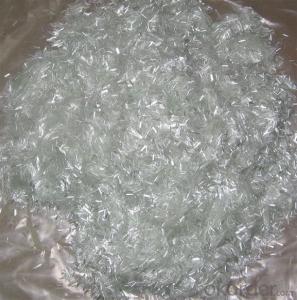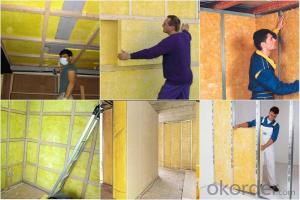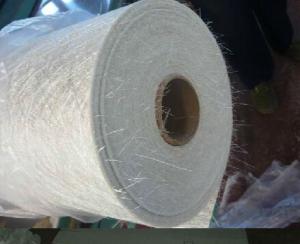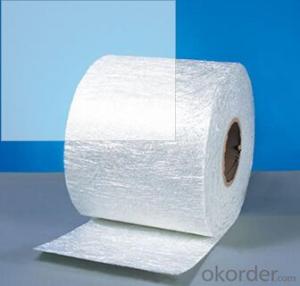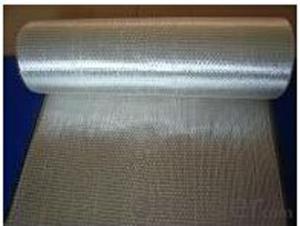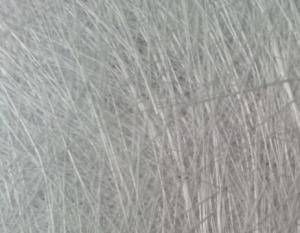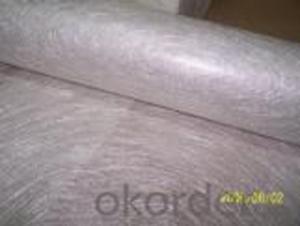Fiberglass Mat Tissue C-Glass Chopped Strand Mat-Powder, Width 1250mm
- Loading Port:
- China Main Port
- Payment Terms:
- TT or LC
- Min Order Qty:
- 10000 m²
- Supply Capability:
- 500000 m²/month
OKorder Service Pledge
OKorder Financial Service
You Might Also Like
Product Description
Chopped strand mat is a non-woven reinforced material. It is manufactured by spreading continuous filament roving of 50mm in length, distributed it at random uniformly held together with powder or emulsion binder.
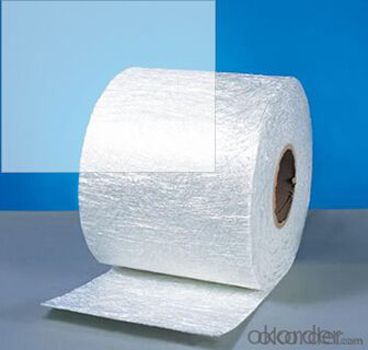
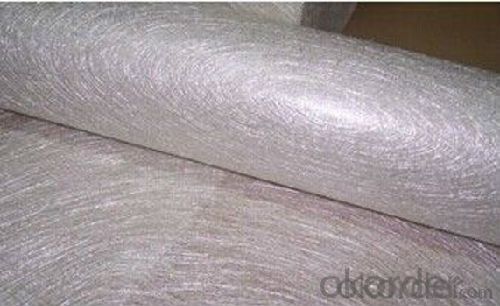
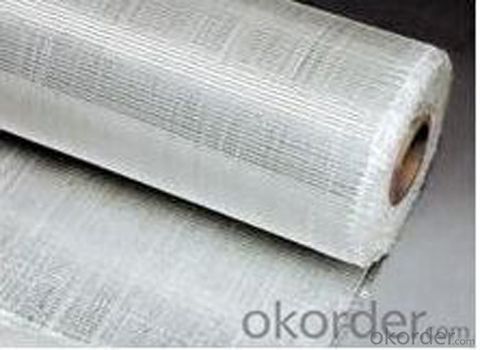
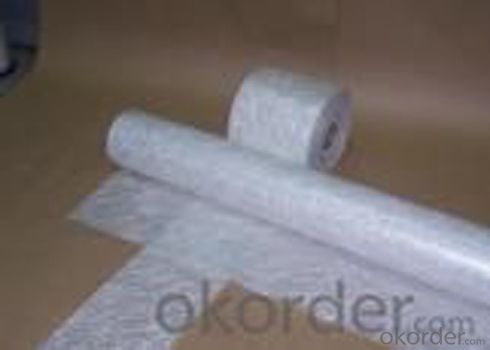
Packaging & Delivery of C-glass Chopped Strand Mat
Packaging Detail: | cartons and pallets |
Delivery Detail: | within two weeks |
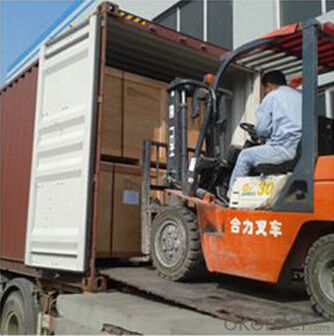
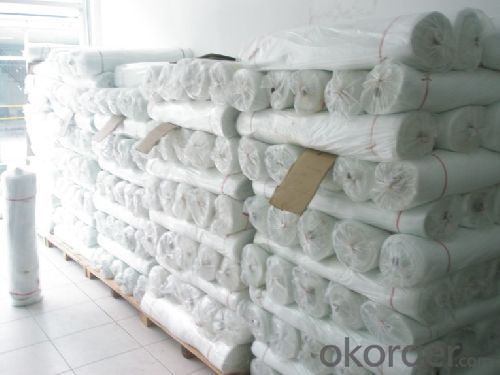
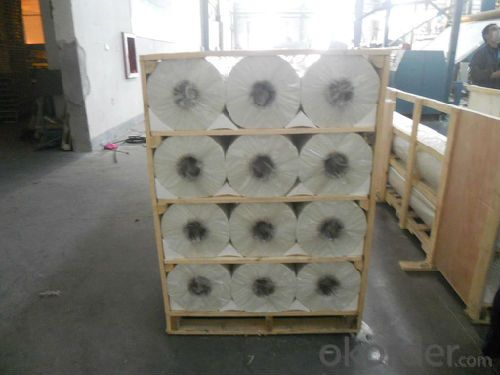
Traits of C-glass Chopped Strand Mat
C-glass fiber chopped strand mat:
1. good wet-out
2. evenly distribution of fiber and binder
3. high mechanical strength etc.
Specification C-glass Chopped Strand Mat
We could provide E-Glass Powder Chopped Strand Mat and E-Glass Emulsion Chopped Strand Mat.
Specs | Roll length(m) | Width(mm) | Roll weight(kg) | Compatible Resin |
EMC225 | 1040mm | 144 | 30 | UP VE |
EMC300 | 1040mm | 96 | 30 | UP VE |
EMC380 | 1040mm | 80 | 30 | UP VE |
EMC450 | 2080mm | 64 | 60 | UP VE |
EMC600 | 2080mm | 48 | 60 | UP VE |
EMC900 | 2080mm | 32 | 60 | UP VE |
The products is raw material to produce FRP products.
Binder type: Emulsion or Power
Packing: by carton or by pallet, or as your requested
FAQ
1. How long will you get reply?
Any inquiry will be replied within 24 hours. Usually we will reply within 12 hours.
2. How long is warranty period?
We provide 3 year warranty period.
3. What is your MOQ?
Our MOQ is 10000 kgs.
- Q: Can fiberglass mat tissue be used for repairing fiberglass structures?
- Yes, fiberglass mat tissue can be used for repairing fiberglass structures. Fiberglass mat tissue is a versatile material that is commonly used in the construction and repair of fiberglass structures. It is designed to provide strength, stability, and reinforcement to the damaged areas of the structure. The mat tissue is typically applied with resin, which helps to bond the fibers together and create a durable repair. It is especially effective for repairing cracks, holes, and other types of damage in fiberglass surfaces. Overall, fiberglass mat tissue is an excellent choice for repairing fiberglass structures due to its strength, flexibility, and ability to conform to various shapes and sizes.
- Q: How does the thickness of fiberglass mat tissue affect its flexibility?
- The thickness of fiberglass mat tissue typically has an inverse relationship with its flexibility. As the thickness of the mat tissue increases, its flexibility decreases. Thicker mat tissues are stiffer and less pliable, making them less flexible compared to thinner ones.
- Q: What are the factors that affect the diameter of electrospun nanofibers?
- Twist, twist, break, watch your strength, wave shape
- Q: What is fiberglass mat tissue?
- Fiberglass mat tissue is a type of non-woven material made from glass fibers that are randomly oriented and bonded together with a binder. It is commonly used in various industries, including construction, automotive, and aerospace. The main purpose of fiberglass mat tissue is to provide strength, durability, and reinforcement to composite materials. It acts as a supporting layer between the resin and the glass fibers, helping to distribute stress and improve the overall mechanical properties of the final product. Fiberglass mat tissue has several advantages over other materials. It is lightweight, flexible, and easy to handle, making it ideal for applications that require complex shapes or curved surfaces. It also has excellent resistance to chemicals, moisture, and temperature changes, ensuring its longevity in harsh environments. In construction, fiberglass mat tissue is often used in the production of roofing materials, wall panels, and insulation boards. Its high strength-to-weight ratio makes it a popular choice for reinforcing concrete structures, such as bridges and buildings. In the automotive industry, fiberglass mat tissue is used in the manufacturing of car parts, such as body panels, bumpers, and interior components. It can enhance the structural integrity of these parts, making them more resistant to impacts and vibrations. In the aerospace industry, fiberglass mat tissue is employed in the production of aircraft components, such as wings, fuselages, and interiors. Its lightweight nature contributes to fuel efficiency and overall weight reduction, while still maintaining the necessary strength for safe flight. Overall, fiberglass mat tissue is a versatile and reliable material that plays a crucial role in enhancing the performance, durability, and safety of various products in different industries. Its unique properties make it an indispensable component in the production of composite materials.
- Q: Is fiberglass mat tissue compatible with different resin systems?
- Fiberglass mat tissue is indeed compatible with different resin systems. This versatile material can be utilized with a variety of resin systems, such as polyester, epoxy, and vinyl ester resins. Its exceptional wet-out properties enable the resin to be absorbed and distributed evenly throughout the mat. Consequently, this compatibility facilitates the fabrication of robust and long-lasting composite structures for numerous industries, including automotive, marine, construction, and aerospace. Nevertheless, it is crucial to carefully assess the unique properties and characteristics of the resin system employed to guarantee optimal performance and compatibility with the fiberglass mat tissue.
- Q: Can fiberglass mat tissue be used for repairing fiberglass boats?
- Yes, fiberglass mat tissue can be used for repairing fiberglass boats. It is commonly used in boat repairs to reinforce weak or damaged areas and provide strength and durability to the repaired sections.
- Q: Is fiberglass mat tissue suitable for soundproofing?
- Yes, fiberglass mat tissue is suitable for soundproofing. It is an effective material for absorbing and dampening sound waves, making it a popular choice for soundproofing applications in buildings, vehicles, and other structures.
- Q: Can fiberglass mat tissue be used for wind turbine blades?
- Yes, fiberglass mat tissue can be used for wind turbine blades. Fiberglass mat tissue is a lightweight and strong material that is commonly used in the construction of wind turbine blades. It provides excellent strength-to-weight ratio and is resistant to corrosion, making it ideal for withstanding the harsh environmental conditions that wind turbine blades are exposed to. Additionally, fiberglass mat tissue can be easily molded into complex shapes, allowing for the creation of aerodynamically efficient wind turbine blades. Overall, the use of fiberglass mat tissue in wind turbine blades helps to improve their performance and durability.
- Q: What is the expected lifespan of fiberglass mat tissue in outdoor applications?
- The durability of fiberglass mat tissue when used outdoors can be influenced by a variety of factors, including exposure to weather conditions, maintenance efforts, and material quality. On average, fiberglass mat tissue is designed to last approximately 20 to 30 years in outdoor applications. Fiberglass mat tissue finds widespread usage in outdoor industries such as roofing, construction, and automotive, where it provides reinforcement and strength to surfaces. Its notable characteristics include durability, moisture resistance, and the ability to withstand harsh weather conditions. To ensure an extended lifespan for fiberglass mat tissue in outdoor applications, proper maintenance and protection are vital. Regular inspections, cleaning, and timely repairs can help prevent potential damage and deterioration. Furthermore, the application of protective coatings or sealants can enhance its resistance to UV rays, moisture, and other environmental factors. It is worth mentioning that the lifespan of fiberglass mat tissue may differ based on the specific application and the quality of the material employed. Therefore, it is advisable to consult the manufacturer or an industry professional to determine the expected lifespan for a particular project or application.
- Q: Can fiberglass mat tissue be used for repairing fiberglass surfboards?
- Yes, fiberglass mat tissue can be used for repairing fiberglass surfboards. It is a common material used in surfboard repairs as it provides added strength and stability to damaged areas.
Send your message to us
Fiberglass Mat Tissue C-Glass Chopped Strand Mat-Powder, Width 1250mm
- Loading Port:
- China Main Port
- Payment Terms:
- TT or LC
- Min Order Qty:
- 10000 m²
- Supply Capability:
- 500000 m²/month
OKorder Service Pledge
OKorder Financial Service
Similar products
Hot products
Hot Searches
Related keywords
